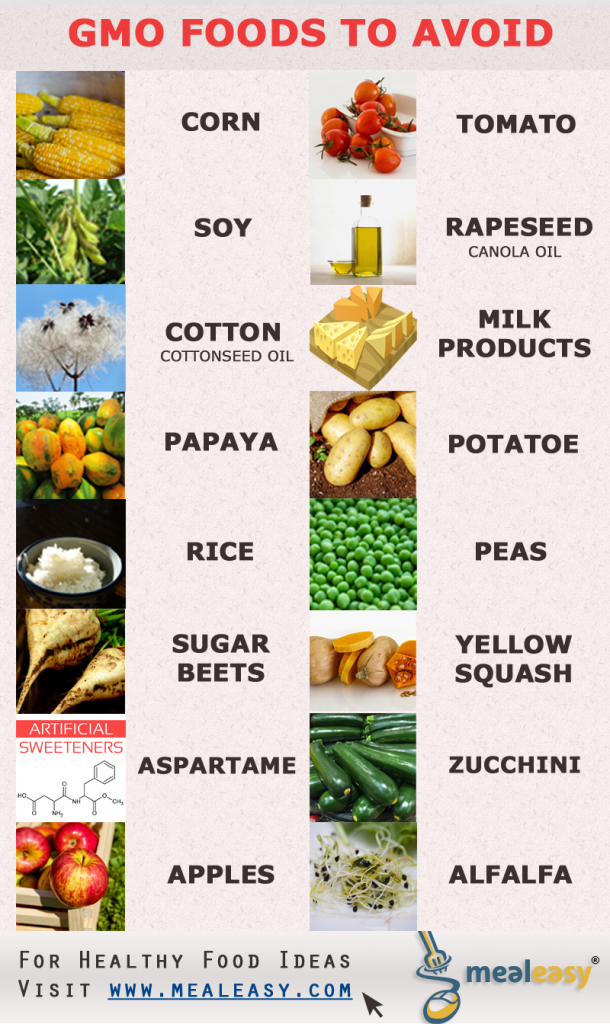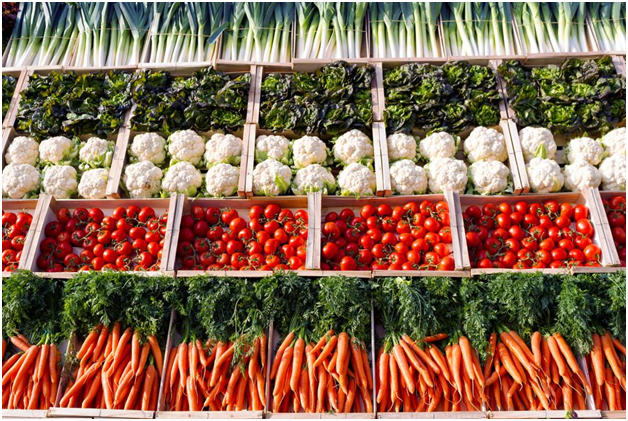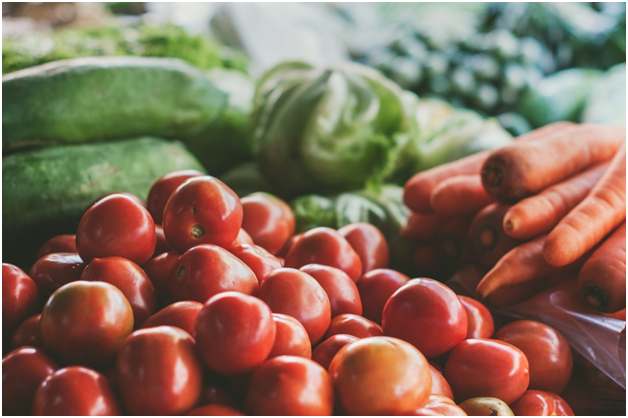Archive for the ‘Blog’ Category
Happy New Year!
January 02 2017
Wishing you all a new year full of good health and happiness from MealEasy!
Merry Christmas and Happy Holidays!
December 24 2016
May your holidays be filled with happiness, joy, good food and health!
Best wishes,
From MealEasy
Genetically Modified (GMO) Foods To Avoid
November 17 2016
 In recent years there has been great controversy on the use of genetically modified foods; sometimes referred to as genetically engineered foods or Genetically Modified Organisms – or “GMO”. This has particularly become a growing issue in the USA and Canada, and affects large portions of our food supply and potentially the health of everyone!
In recent years there has been great controversy on the use of genetically modified foods; sometimes referred to as genetically engineered foods or Genetically Modified Organisms – or “GMO”. This has particularly become a growing issue in the USA and Canada, and affects large portions of our food supply and potentially the health of everyone!
If you value your own and your family’s health, please read this important article that can protect and improve one’s health for years to come!
Please share and help spread the word.
What Are Genetically Modified Foods?
GMO foods are foods that have been modified from their original natural form as found in nature using genetic engineering techniques that alter the DNA structure of the food.
Genetically modified foods also include modification to livestock, and seafood products.
Why Is It Being Done?
These techniques allow for industry to introduce new desirable traits to foods. Examples include better resistance to pathogens, herbicides and to help improve the nutrients provided.
The underlying reason is to maximize production and sales of food. This includes:
- Increasing the crop yields for farmers
- Adds more nutritional value to crops
- Reduces the need for pesticides
- Helps to decrease food prices for consumers
- Increase profits for food producers
- Industry testing indicates it is safe for human consumption
What Foods Commonly Contain GMOs?
While browsing the isles at the grocery store, be on the look out for the most common foods that are likely to be genetically modified, unless otherwise labeled.
The most common foods include corn, soy, cotton (used to make cottonseed oil), papaya, rice, sugar beets (commonly used to make sugar), aspartame (a common artificial sweetener), tomatoes, rapeseed (used to make canola oil), milk/dairy products, potatoes, peas, yellow squash, zucchini, apples and alfalfa; in no particular order.
Note that this list applies to ANY products that are derived from these ingredients!
More recently animal based products such as salmon have begun to be introduced to Canadian and USA food supplies, without the necessity to label them as GMO foods.
Are Genetically Modified Foods A Problem?
There is lots of controversy on the use of GMOs. Some of the main concerns include:
- Increasing Use Of Pesticides: Most GMOs are designed to require the use of pesticides and herbicides. Manufactures have suggested that use of GMOs would reduce the need for these chemicals. Unfortunately, this does not seem to be the case, with the use of pesticides/herbicides increasing instead, according to this recent study.
- Health Risks: According to Jeffrey Smith, a leading national expert on the dangers of GMOs, we don’t know for sure if modifying genes can lead to increased health risks including:
- The possibility of releasing more allergens, toxins or the introduction of new diseases.
- The negative effect of herbicides on human intestinal bacteria and diseases related to intestinal health.
- Increased risk of cancer according to recent peer reviewed studies.
- No Long Term Studies: The data is still not in as to the long term effects of genetically modified food consumption. It remains to be seen if it is truly safe for people to eat on a continuing basis. The FDA has not conducted such studies before approving the use of GMOs.
- Environmental Impacts: Both GMO crops and the increased need of pesticides/herbicides negatively impact the environment. Increased use of pesticides and herbicides pollute the air, water and soil in which they are used. Use of GMOs cause cross-pollination issues with other plant life, destroying natural plant life, and causing additional unknown consequences and once they are introduced to an environment their effects are there to stay.
Farmers and studies have also confirmed increasing numbers of superbugs and superweeds that are becoming more and more of a problem as a result of the use of GMOs.
What Can We Do?
It’s becoming increasingly difficult to know what food is in fact genetically modified. Due to new legislation and push from the industry giants, labeling of GMO foods is being allowed to be hidden from consumers who want to make an informed decision when buying food. As a result of corporate interests driving government policies, it is not required by law for foods to be explicitly labeled as genetically modified in the United States.
New law states that food must be identified using obscure methods such as a website address, QR code, or telephone number placed on food products. In Canada there are no requirements for labeling of GMO foods.
Here Are Some Tips to Help You Avoid GMO Foods
- Avoid Processed Foods: In fact, if you buy processed foods you are very likely to be eating GMO foods more often than not.
- Buy GMO Free or Organic: Whenever possible buying foods marked as “organic” or “GMO free” can help. It should be noted that “organic” does not necessarily mean “GMO free”, however, items labeled as organic do need to be 95% GMO free.
- Reduce Your Exposure: Limit your consumption of commonly affected foods or look for GMO-free versions. Especially for the most commonly affected foods (see the list of common GMO foods here).
Making your own meals and having full control of what you put in your body and your family’s stomach is key. By planning ahead and using smart planning tools such as MealEasy, it’s easier than you think!
The Hidden Dangers of Processed Foods
October 12 2016
Did you know that the eating processed foods is one of the leading causes of major health issues and weight problems? You may unknowingly be eating these unhealthy foods routinely. Find out how to reduce your consumption of these deadly foods. Do so and you can improve your wellbeing significantly, safeguarding your most precious asset – YOUR HEALTH! 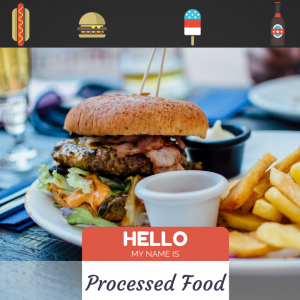
You’ve likely heard the words “processed food” in the past, and perhaps don’t think of it much while browsing the isles at the grocery store each week.
You may be wondering “What are processed foods?”… Well, you can think of them as any food that is unnatural, or does not occur naturally in nature. This includes foods that have been altered from their original form by addition of additives, preservatives, hormones, vitamins and minerals, heat treatments (that destroy natural enzymes), fatty acids, chemicals or that contain genetically altered ingredients.
Why Do Processed Foods Exist?
There are several reasons including to prolong the shelf life of the food, “enhance” flavor, make the food more esthetically appealing, and in general to try to get you (the consumer) to buy more and reduce associated cost to the food producer. Most processed foods are design with convenience in mind, ahead of your wellbeing.
Types of Processed Foods
Browsing the grocery store, you’ll begin to recognize that more and more of the foods we eat today are processed in some form. We as consumers need to keep our eyes open when purchasing food. This includes reading labels. It’s our own responsibility to choose what we eat carefully and individually to take control of our own health – no one else will do it for us!
In general most foods that are packaged, canned, or in some cases frozen are very likely to be processed in some form. Many have a very long shelf life.
More specifically, you’ll likely want to avoid these common culprits:
- Refined sugar including its variations such as corn syrup / high fructose corn syrup, dextrose, fructose, maltodextrin, sucrose, etc.
- Refined carbohydrates such as items with refined white flour.
- Artificial sweeteners such as aspartame (Equal / NutraSweet), Neotame, Saccharin (SugarTwin / Sweet’N Low) and Sucralose (a.k.a. Splenda)
- Chemically processed foods including artificial coloring, flavors, added textures or food additives.
- Soft drinks, or drinks with added sugar (including any of the refined sugar or artificial sweeteners, colorings or flavors)
- Fast foods
- Junk food
- Processed meats
- Frozen foods
- Refined wheat flour, including bleached white flour
- Boxed food items
- Margarine and hydrogenated vegetable fat
- Refined vegetable oil
- Canned items
- Genetically Modified Organisms (GMOs) and Foods – Hint: By avoiding the foods listed above, it will help reduce your exposure to the ever increasing use of unnatural and potentially detrimental effects of genetically modified foods that are more commonly used in processed foods.
In addition to avoiding the foods listed above, whenever possible it’s advisable to eat organic products including produce, milk product and meets, as organic foods are subject to less processing and reduce to odds of the damaging effects of processed foods. The more processed foods you eat, the more you are subjecting your body to its dangers.
Before explaining the dangers, it should be noted that not all processed foods are bad food choices. Though it’s always preferable to eat fresh whole foods that resemble their most natural form, some processed foods can be eaten safely as part of a balanced diet, and/or in moderation. For example, frozen vegetables or fruits are not necessarily bad choices though fresh alternatives of course are healthier.
The processed foods that are of concern are more so the chemically processed foods.
What Are the Dangers of Processed Foods?
There’s no question you want to slash your risk of disease, improve your overall health and live a longer happier life. We all do, but most of us don’t take action and don’t realize the MOST EFFECTIVE way to achieve this is by paying closer attention to what we eat!
Studies confirm that the effects of processed foods are making us sicker, fatter and shortening our lives at increasing rates.
Processed foods generally contain high amounts of refined sugar and/or carbohydrates (see the list of “refined sugar” types above). This is a major concern, as the human body was never designed to eat so much sugar. Excessive sugar consumption has been linked to many diseases including Alzheimer’s disease, diabetes, heart disease, obesity and even cancer. Consuming too much refined carbohydrates in general can also lead to issues such as insulin resistance; a precursor to many chronic diseases.
You are likely unaware of just how much sugar is in typical items you use regularly. Items that may not seem like they contain much sugar, in fact have very high amounts and it all adds up throughout the day.
On top of this, processed foods contain artificial ingredients such as preservatives, colorings and flavors that are designed in the interest of food manufactures, and not your health. Studies confirm that many of these have been linked to allergic reactions, cancer, and other diseases.
Another major issue is the amount of unhealthy fats, known as trans fats. These fats are commonly used in processed items, and has been linked to many health issues including heart disease.
These convenience foods also lead to one of the developing world’s biggest issues… obesity. Processed foods generally have much more calories vs natural alternatives and have less fiber content. This leads to eating too many of the wrong type of calories and in the end, weight gain.
|
Interestingly, recent studies on saturated fats and heart disease, show whole food sources such as eggs, dairy products, meats, etc. are healthy to eat and are not linked to heart problems; so long as trans fats are avoided.
Think twice when you eat processed foods – they’re more dangerous then they may seem.
What Should You Do?
Thankfully, there is an easy solution. All you need to remember is to buy mostly whole foods, and minimize processed items. Be mindful of what you are putting in your grocery cart.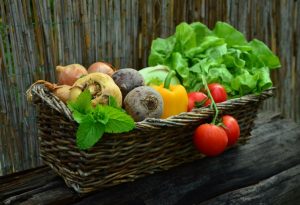
Think of it this way: If it wasn’t in that form in nature, there’s a good chance it’s not the best food choice that your body was designed to eat.
Look for fresh vegetables, fruits, unprocessed meats, eggs, nuts, seeds and avoid boxed items, cans, and convenience foods and make your meals at home.
An easy way to improve your health and avoid the dangers of processed food is to have a plan about what you will eat and to make meals from scratch at home. By doing so you avoid unhealthy purchases, and know without a doubt you are eating the right foods for optimal health and wellbeing.
If you would like help planning whole food meals please consider joining MealEasy. All of our meal plans are based on using unprocessed whole foods. You’ll see step-by-step how to make a huge variety of delicious healthy meals the easy way. Improve your diet significantly by giving it a try.
Top Weight-Loss Friendly Foods To Add To Your Diet
September 02 2016

According a report published in JAMA Internal Medicine, more than one-third of Americans are obese and overweight. Obesity is a common condition that causes life-threatening health issues, including heart disease and type 2 diabetes. Continue reading
Gluten Allergy – What To Avoid And What To Eat
August 29 2016

Are you allergic to gluten? Although “gluten-free diet” is the latest buzz word, not many people know what‘gluten’ really is.
Gluten is a type of protein found in certain grains, wheat, rye and barley. It consists of proteins known as gliadin and gluten in, which can be detrimental to some people’s immune system. Continue reading
5 Tips To Eat Healthy On A Budget
July 27 2016
Despite its unlimited benefits, healthy food is considered to be more expensive. According to a study by Cambridge University, healthy food costs three times as much as consuming unhealthy food.
So should we use this to justify eating the “unhealthy” food that is often not even fit for human consumption? We also need to ask ourselves if our health is worth the savings and then, should we be even comparing? There are huge savings to be realized by making our own meals, which by far outweighs the “additional” cost for the “healthy” food.
Let’s look at it this way: Would you put cheap oil in your car’s engine to save $20.00, if you knew it could cost you $600 in repairs down the road? And here we are talking about our health, not a car engine.
If money is still an issue, there are plenty of practical ways to reduce expenses.
Here are 5 tips that can help you eat well-balanced foods on a budget:
Buy seasonal produce
Purchase seasonal food to save money. Not only do seasonal fruits and vegetables taste better, they often cost less than off-season items. Since seasonal produce is in abundant supply, it costs less than foods that are out of season.It’s a good idea to stock up on these items.
Buy in bulk
Another great way to save money and time is to purchase food in bulk. Although bulk purchases entail a hefty cost, it really saves money in the long run.
Buy seasonal produce and grains in bulk, whenever possible. Make sure to store them properly in air-tight containers, so that they don’t go bad.
Similarly, you can purchase large quantities of meat and then freeze or use smaller portions for use later on.
Use leftovers
Try to cook large portions. If you are left with leftovers, don’t discard anything. You can reuse dinner leftovers as a scrumptious homemade lunch. Furthermore, you won’t have to make multiple meals throughout the day.
You can even freeze your dinner leftovers and then reheat them later on as convenient lunches or dinners. To help you with this, MealEasy meal plans show you which meals are freezable.
Eat more beans and whole grains
Try to eat more beans and whole grains than meat. Black beans are packed with folic acid, fiber and potassium. They cost $0.30 per 1/2 cup or $1.50 per can. Moreover, quinoa and brown rice are delicious yet economical healthy food items. Purchase these items in bulk. You can use them immediately or store them for later use.
Plan and prep meals
Most importantly, plan your meals ahead of time, to help you not only to balance your nutrition, but also to balance your budget.
Planning ahead not only gives peace of mind knowing what your next meal is going to be,but by having a shopping list generated as part of the plan,you will avoid spontaneous purchases that can add to the cost of groceries,for food you don’t really need.
Making homemade meals has so many benefits vs eating out, as described in this informative guide.
For the most efficient online meal planner, we have got you covered. MealEasy provides an array of low-cost meal plans to help families save on groceries and the cost of unhealthy eating. To keep your costs down, MealEasy indicates which meals are lowest cost, while ensuring they are healthy. In addition, the online portal features other meal plans, which include heart-healthy meal plans, and vegetarian meal plans – among others.
5 Tips For Planning And Sticking To A Healthy Diet
July 01 2016
We all know the countless benefits of eating healthy. A well-balanced diet is imperative to losing weight. But that’s not all.
A nutritious diet is the secret to glowing, radiant skin. Not to mention, consuming a balanced diet that is rich in vitamins, minerals and nutrients boosts brain and heart function, and prevents diabetes.
What you eat has a substantial impact on your health. In fact, your food choices can even change your outlook on life. If you want to look and feel good, it’s crucial to adopt a healthy, balanced dietary routine. In other words, focus on fruits and veggies, low-fat dairy, protein, and good fats.
But planning and sticking to a balanced diet is easier said than done. In order to assist you, here are 5 tips you should follow:
Simplify your meals
Don’t obsess over calories at this point. Instead, choose foods and drinks based on freshness and variety. Eating a variety of foods will ensure that you get all nutrients and vitamins. Moreover, it will limit your exposure to harmful substances in a particular food.
Similarly, opt for fresh ingredients. Avoid processed food as they contain toxic ingredients that are detrimental to your health.
 Plan and prepare meals in advance
Plan and prepare meals in advance
Develop a workable game plan. Be realistic. Plan and prepare your meals accordingly.
Take advantage of MealEasy’s eating plans to cook scrumptious, yet wholesome, meals on time and within your budget.
You can use MealEasy’s balanced meal plan to search for recipes, track nutritional values, shop for ingredients and prepare meals based on your individual preferences and health and dietary goals.
Rotate your meals
Alongside meal planning, try to mix up your meals to prevent boredom. Also remember to experiment with a variety of healthy ingredients.
For example, if you want to add greens to your meal, think beyond lettuce or broccoli. There are plenty of other options to choose from, such as Chinese cabbage and Kale.
Aim for balance
Have three healthy meals every day. Healthy snacks are just as important. Remember to have breakfast to boost your metabolism and energy.
In addition, avoid eating at night. Aim to eat dinner early for proper digestion of food. Most importantly, listen to your emotions and body. Be mindful of what you eat; don’t feed your feelings.
Have smaller portions and take time to enjoy your meal. Stop eating when you feel full.
Practice moderation
Last, but not least, eat in moderation. Don’t have too little or too much of a certain food. Even if it’s sweets, have smaller portion to satisfy your craving. Don’t ban any single food.
Follow these simple tips to live a happy, healthy life!
Top 5 Tips For A Gluten-Free Diet
June 29 2016
Do you have gluten sensitivity? You’re not alone. Statistically speaking, nearly 18 million Americans are allergic to gluten. In addition to gluten sensitivity, many individuals have adopted a gluten-free dietary routine because of its health benefits.
Needless to say, a gluten-free diet has become a popular trend today. The demand for gluten-free foods is surging substantially. According to Statista, the market is projected to be valued at $23.9 billion by 2020.
In addition to gluten intolerance, many individuals have adopted a gluten-free dietary routine because of its health benefits.
But is this diet really beneficial? Read on to find out …
What is gluten?
 To put it simply, gluten is a special type of protein that is present in certain grains, wheat, rye and barley. Its main purpose is to keep food elasticity intact during the production phase.
To put it simply, gluten is a special type of protein that is present in certain grains, wheat, rye and barley. Its main purpose is to keep food elasticity intact during the production phase.
Gluten consists of gliadin (a prolam in protein) and gluten in (a glutel in protein). Gluten is harmful for certain individuals due to their body’s inability to digest gluten properly.
Consuming gluten can cause celiac disease. Some symptoms of celiac disease include diarrhea, change in appetite, bloating or gas, nausea, skin rashes, fatigue and much more.
What comprises a gluten-free diet?
A gluten-free diet excludes the protein gluten. You should avoid consuming foods that contain rye, barley, wheat and triticale. Focus on fresh fruits and veggies, beans, low-fat dairy, fresh eggs, lean meat and fish.
That being said, sticking to a gluten-free diet can be extremely frustrating. You need to prepare yourself to achieve successful results.
Here are some effective tips to help you limit or take out gluten from your meals:
Always read food labels
When you shop, check out each food item’s label to assess the ingredients used.
For example, if you want to buy cereal, look for gluten in the list of ingredients.
Some items are labeled gluten-free for your convenience.
Keep yourself informed
Educate yourself in the pros and cons of a gluten-free diet. Start searching for information online.
Plan your meals appropriately
Plan your meals to make your life simpler. Try to keep a stock of ingredients on hand for all three meals – breakfast, lunch and dinner, along with snacks.
As a rule, cook in quantities and store carefully. If you have leftovers, freeze them.
Vary your diet
Add variety to your diet. Mix things up. Otherwise, you may get sick of a gluten-free diet quickly.
Moreover, incorporate an array of gluten-free foods into your diet to obtain essential vitamins and nutrients.
Join MealEasy
Check out the many delicious, healthy gluten-free recipes on MealEasy. With over 900 gluten-free meal ideas, Meal Easy makes gluten-free meals planning simpler and affordable.
5 Commonly Asked Questions About Vegetarian Diet
May 28 2016
Adopting a vegetarian diet has gained much attention in recent years. Whether it is animal welfare or health concerns, an increasing number of Americans are embracing a vegetarian diet. Continue reading



